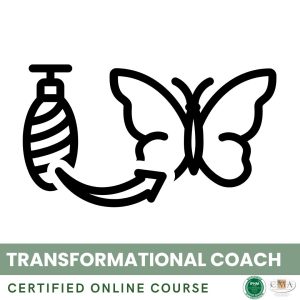Continuing education and deepening of knowledge are essential pillars of a spiritual healing coach’s professional development. In a field in constant evolution, where scientific discoveries and technological advances coexist with ancestral wisdom, it is vital to stay informed about the latest trends and continue to expand one’s area of expertise throughout one’s career.
Engaging in a process of continuing education is a sign of humility and the acknowledgement that one never knows everything. It’s about cultivating an insatiable curiosity for different healing approaches, whether they stem from psychology, neuroscience, quantum physics or spiritual traditions. It’s also about choosing excellence, by giving oneself the means to offer clients increasingly refined and tailored support.
In practical terms, continuing education can take many forms, tailored to everyone’s needs and aspirations. Conferences, seminars, and workshops are privileged opportunities to meet experts, discover new tools, and stay abreast of the latest research. Attending these events is also an opportunity to network with peers, exchange best practices, and nourish one’s motivation by revitalizing oneself in the company of other enthusiasts.
Certification programs are another powerful lever for professional development. Whether it’s about deepening a field of expertise (like hypnosis, NLP, or family constellations) or specializing in a specific area (like bereavement support, serious illnesses, or eating disorders), following a structured curriculum allows gaining expertise and legitimacy. It’s also an opportunity to compare one’s practice with that of other professionals and to take a step back from one’s posture.
Beyond in-person trainings, the internet today offers a goldmine of resources for continuing to learn at one’s own pace. Online training, webinars, podcasts, and virtual practice communities allow access to high quality content, often at a reduced cost. Following a MOOC (massive open online course) from a prestigious university, participating in a discussion group on social media or subscribing to a specialized magazine are all ways of opening up to new perspectives.
Reading is also an essential vector for deepening knowledge. Whether one dives into the writings of great sages and mystics, studies the latest scientific publications, or feeds on contemporary literature on self-development, books are precious companions on the path of self-knowledge and understanding of the world. Building one’s internal library, taking notes, and making connections with one’s practice is a fruitful discipline to strengthen one’s expertise.
Finally, continuing education also involves experimentation and practice. Testing new tools on oneself, setting learning challenges, undertaking personal or association projects are all opportunities to step out of one’s comfort zone and develop new skills. As the proverb goes, “practice makes perfect”: It is by daring to confront the unknown that one grows and becomes a better practitioner.
Engaging in a process of continuing education is a choice of openness and growth. It’s about rejecting the routine and comfort of acquired skills to embrace the vertigo of lifelong learning. It’s also a great human adventure, which leads us to meet inspiring people, to surpass ourselves and constantly push our limits. By cultivating this thirst for learning, the spiritual healing coach honors his commitment to his clients and to himself: to always be as close as possible to his potential, to better serve those he supports on the path of transformation.
Key Points:
– Continuing education and deepening of knowledge are essential for the professional development of a spiritual healing coach.
– Engaging in a process of continuing education requires humility, curiosity, and a determination to strive for excellence in client support.
– Continuing education can take various forms: conferences, seminars, workshops, certification programs, online learning (MOOC, webinars, podcasts), reading, experimentation…
– Pursuing training allows discovering new tools, staying informed of the latest research, deepening expertise, gaining legitimacy, and exchanging with peers.
– The internet offers many accessible resources for ongoing education at one’s own pace and at a reduced cost.
– Reading a variety of books (wisdom, scientific research, self-development) is a pillar to deepen one’s knowledge.
– Experimenting and implementing new learnings on oneself and in projects helps to develop new skills.
– Committing to continuing education is a choice of openness, growth, and ongoing self-improvement to ensure the quality of the support offered.
👉 To download docx (Editable) file click here : Click here
👉 To download PDF file click here : Click here
👉 To download MP3 file click here : Click here






